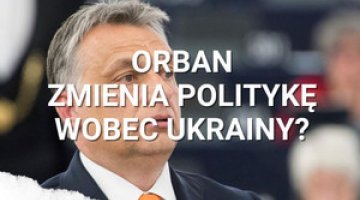The state more present in Hungary's energy industry
In October the Hungarian parliament adopted the National Energy Strategy for the period up to 2030. The previous strategy was passed by the Socialists three years ago but the government of Viktor Orbán, which took power in spring 2010, believed that changes in the world’s economy require a new long-term strategy. The main orientations of Hungary's energy policy presented in the strategy have remained unchanged. The priorities are the following: energy independence to be achieved through the diversification of energy sources and supply routes, reduced dependence on energy imports and an increased role for nuclear energy as well as renewable sources of energy (biomass, geothermal sources of energy). More emphasis was put on the development of cross-border connections (including the North-South gas corridor) and the state's role in the energy industry to protect consumers from price rises. The strategy confirms the will to modernise and extend the nuclear power plant in Paks. This will be crucial for reducing CO2 emissions.
Commentary
- The strategy reflects statist trends in Hungarian politics and confirms that the measures taken by the government have not been only short-term. After having bought 21.2% of shares from the Russian Surgutneftegas, Hungary has this year become the largest shareholder in the oil and gas company MOL. It is however the state-owned electricity and energy company MVM that is emerging as the main actor implementing the government's energy policy. This spring the company's subsidiary OVUT became the Hungarian executor of the construction of the gas connector with Slovakia (replacing MOL). MVM has also been assigned the establishment of a gas stock exchange which is due to be launched at the beginning of 2013. It may be expected that MVM will extend its activities and a new state-owned company will be set up which will deal with trade in natural gas.
- The extension of cross-border gas connections with neighbouring countries will play an important role in the Hungarian energy policy. The government of Viktor Orbán believes that such connections can substantially improve the country's energy security as they will lead to competition on the gas market and strengthen Hungary's position in the negotiations of a new gas contract with Russia (the current one expires in 2015). The strategy foresees its target as the enabling of gas supplies amounting to 10-12 billion m3 from the Austrian and Slovakian directions combined. The government is trying to meet the deadlines for the construction of the interconnector with Slovakia: on 2 November this investment was granted special status and this will enable preparatory proceedings to be fast-tracked so that this gas pipeline is operable at the beginning of 2015. The investment is further (after the connections with Croatia and Romania) element of the North-South energy corridor which will give Hungary access to the LNG terminal in Poland and to Polish deposits of shale gas.
- The strategy confirms Hungary's commitment to the implementation of the Southern gas corridor (Nabucco, AGRI) and the South Stream gas pipeline project. Hungary may try not to determine its preference for any of the rival projects until one of them becomes decidedly more realistic as regards implementation. The Hungarian government will focus above all on regional co-operation and the extension of cross-border connections as it has more control over their construction and because they can bring in tangible results more rapidly.





